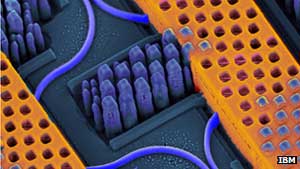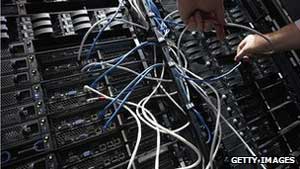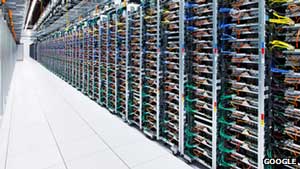10 Dec 2012 - {{hitsCtrl.values.hits}}
 IBM says it has developed a chip that makes it easier to shuttle data about via pulses of light instead of using electrical signals.
IBM says it has developed a chip that makes it easier to shuttle data about via pulses of light instead of using electrical signals. By combining these together the firm says data can be transferred hundreds of times faster still.
By combining these together the firm says data can be transferred hundreds of times faster still. Breaking the bottleneck
Breaking the bottleneck
25 Dec 2024 41 minute ago
25 Dec 2024 1 hours ago
25 Dec 2024 1 hours ago
25 Dec 2024 5 hours ago